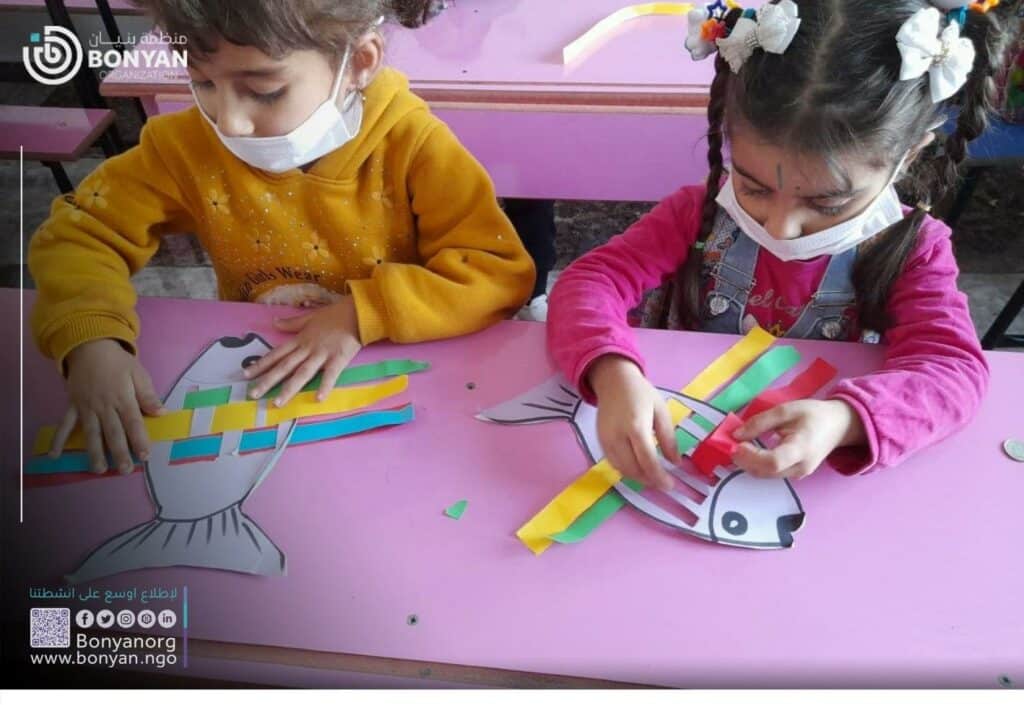Education is an integral part and parcel of any civilization. It is the driving force of development and building the future.
Nevertheless, due to civil wars and internal conflicts, millions of children have dropped out of school and now face several challenges in accessing education.
This article highlights the main challenges that impede refugee children from accessing education, compounding their plight and misery.
The Challenges Faced by Refugee Communities in Accessing Education
There are several challenges that refugee students face that hinder their access to education, affecting their future in the long term. These obstacles include:
- Socio-economic problems.
- Family problems.
- Lack of family engagement.
- Language barriers.
- Racism.
- Prejudice.
- Social exclusion.
- Xenophobia.
- Cultural differences.
In addition, some teachers lack the essential knowledge of refugee students’ cultural backgrounds.
As a result, they fail to integrate them into the host culture.
The Importance of Education in Building Resilience and Empowerment Among Refugee Communities
There is no doubt that education is an integral component of a civilized society.
Education is one of the basic human rights cherished in the 1989 Convention on the Rights of the Child and the 1951 Refugee Convention.
That is, education is one of the most effective weapons that protect refugees from multiple problems that they might face, including child labor and sexual exploitation.
Additionally, education is the basis for establishing the refugee community’s resilience because it provides them with knowledge of their rights and responsibilities.
Moreover, education paves the way for refugee children to lead independent, productive lives in the future.
In a similar vein, education enlightens refugee youth about the surrounding communities, encouraging them to build their own.
Strategies for Providing Education to Refugee Communities, Including Formal and Informal Approaches
Given that education is one of the basic human rights for the refugee communities, governments and civil society should work on strategies that enhance their access to education.
Such strategies include the following:
- Developing inclusion initiatives to increase the number of refugee students in their national education system.
- Addressing the financial obstacles that stand in the refugee students’ way to access education.
- Providing refugee families with financial assistance to help them prioritize educating their children will reduce the likelihood of thinking about child labor to support them.
- Introducing scholarship programs designed to help refugee students enroll in the education system by covering the costs of tuition fees, transportation, food, and accommodation.
- Providing refugee students with psychological support, language courses, and mentoring.

The Role of Technology in Facilitating Access to Education for Refugee Communities
Technology plays a significant role in facilitating access to education for refugee youth.
With the advent of online learning, refugee children can engage in the learning process online.
Moreover, with digitization, educational materials such as textbooks, homework, exercises, and other additional resources can be accessed online easily.
Since we acknowledge the importance of education as a key tool to build the lives of future generations, at Bonyan Organization, we make sure to educate refugee children.
Help us educate 23,000 children in northwest Syria who have no access to any type of education.
Support our “Tented Classrooms in Syrian Camps” campaign to help fund the tented classrooms at the Syrian camps and equip them with the following:
- Tent floor.
- Insulation.
- Heating and ventilation equipment.
- Whiteboard and plastic desks.
- Educational materials for children.
Donate at this link: (click here)
Resources
- Supporting Refugee Children & Youth: Tips for Educators.
- Culturally responsive practices for supporting refugee adolescents.
FAQs
How can we help the refugee community?
We can help the refugee community by donating to support educational projects for refugees.
How to empower refugees through technology?
We can empower refugees through technology by enrolling them in online courses to help educate them.
What are the key needs of refugees?
The key needs of refugees include:
Nutrition.
Education.
Shelter.
Nutrition.
Energy.
Sanitization.
What are the important digital skills that refugees need to learn?
Some of the most important digital skills that refugees need to learn are:
Graphic design.
IT.
E-commerce.
Digital marketing.
Data analytics.
Content
- The Challenges Faced by Refugee Communities in Accessing Education
- The Importance of Education in Building Resilience and Empowerment Among Refugee Communities
- Strategies for Providing Education to Refugee Communities, Including Formal and Informal Approaches
- The Role of Technology in Facilitating Access to Education for Refugee Communities
- Resources
- FAQs



